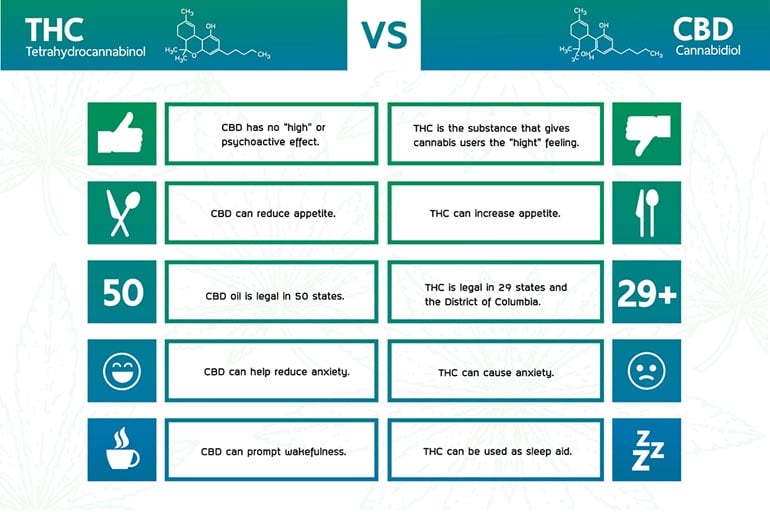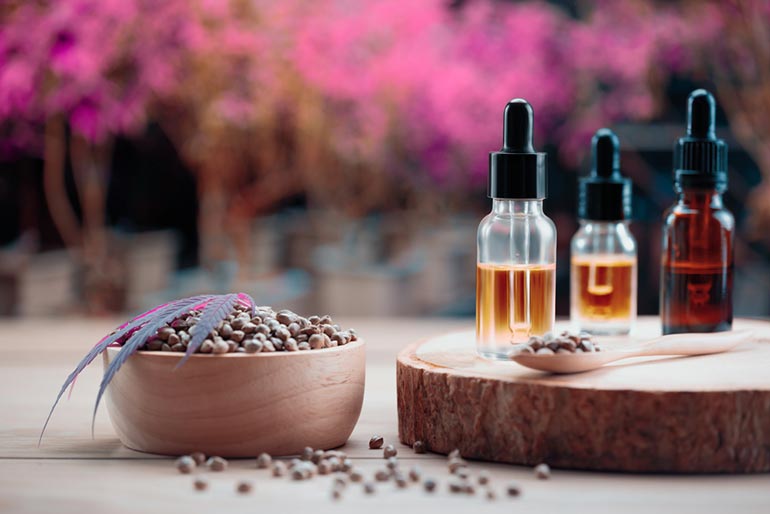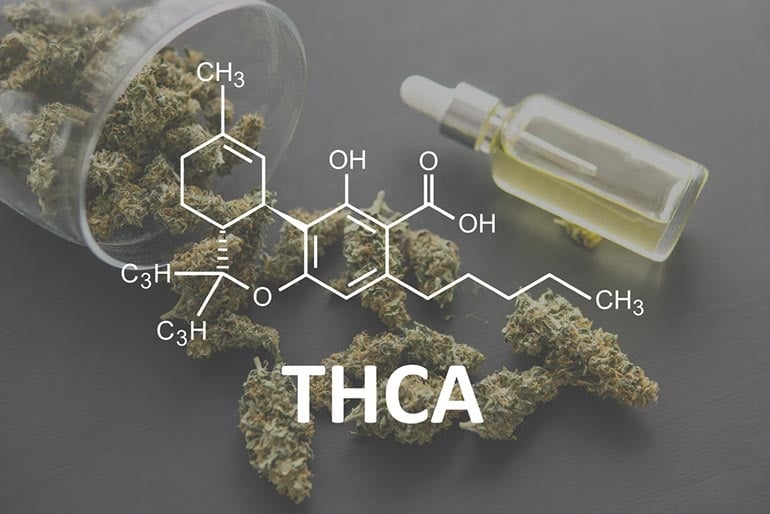Start 14-Day Trial Subscription
*No credit card required

What Is THCa and What Does It Do? The Difference Between THCa and THC
Unlock the secrets of THCa – the non-psychoactive precursor to THC in cannabis. Discover its unique characteristics, conversion process and potential health benefits. Whether you're seeking therapeutic relief or recreational enjoyment, make informed choices with our comprehensive guide on THCa vs THC.
Have you ever wondered what THCa is and what it does? Are you struggling to differentiate between THCa and its more famous counterpart, THC? If you are navigating the complex world of cannabis components, understanding THCa's role and effects can be quite puzzling. You're not alone in seeking clarity on how these compounds interact with our bodies.
In this guide, we will unravel the mysteries surrounding THCa by highlighting its unique characteristics as well as how it differs from the more commonly referenced compound of THC.
What is THCa or Tetrahydrocannabinolic Acid?
THCa, short for Tetrahydrocannabinolic acid, is a compound found in the cannabis plant. Think of it as the raw, uncooked version of THC. While a cannabis plant grows, its THCa content is extremely high, but this compound doesn't make you feel 'high' like THC does; that's because THCa doesn't affect your brain the same way.
The next logical question is how does THCa turn into THC? It's quite simple. When THCa gets heated up, like when it's smoked or cooked, it changes into THC. This process is called decarboxylation. It's like when you cook a raw food ingredient and its flavor and texture changes.
To sum it all up, THCa is the natural cannabidiolic acid form of THC found in the cannabis plant. It's non-psychoactive, meaning it won't make you feel high. But when heated, it transforms into THC, which has different effects on the body and mind. In the next section, we'll explore these differences in more detail. But what exactly does THCa do, other than become THC when heated? Let's explore that.
Looking to Buy Legal Cannabis, Hemp, Delta 8, 9, 10 or CBD?
Shop Galaxy Treats: (25% Off with 25LIFE)
Shop Blue Moon Hemp: (10% Off with CBD10LIFE)
What Does THCA Do?
THCa doesn't interact much with the brain. This is why it doesn't cause the 'high' feeling that THC does. But that doesn't mean it's inactive. In fact, THCa has its own set of potential benefits, though it's important to note that research on that subject is still ongoing and not conclusive.
Firstly, THCa has anti-inflammatory properties. This means it could help reduce swelling and pain in the body. Some people use it for conditions like arthritis, in which inflammation is a big problem.
THCa also holds the potential to help with neuroprotective effects. This means it could protect nerve cells against damage, which is crucial for diseases like Alzheimer's.
THCa is also being looked at for its potential anti-nausea effects. This could be helpful for people undergoing treatments like chemotherapy, which often causes severe nausea.
Lastly, there's some early research suggesting that THCa might help with sleep and anxiety, along with increasing relaxation, although more studies are needed to confirm these effects.
It's important to remember that most of these potential benefits are based on early-stage research. The effects of THCa can vary greatly from person to person, and more studies are needed to fully understand its role and efficacy.
In short, while THCa doesn't produce the psychoactive effects that THC does, it might offer its own range of benefits, particularly in terms of anti-inflammatory and neuroprotective properties.
Differences Between THC and THCa

There are some major differences between THC and THCa that will help users differentiate between the two.
Psychoactive Effects
The most notable difference between the two is their psychoactive impact. THC is well-known for its ability to create a 'high' or feelings of euphoria. This happens because THC directly interacts with the brain's cannabinoid receptors.
On the other hand, THCa does not produce these psychoactive effects. It doesn't bind to the brain's receptors in the same way, so it won't make you feel high.
Chemical Structure
While THC and THCa may sound similar, their chemical structures are different. THCa molecules contain an extra carboxyl group (COOH) attached to them. When THCa is heated (through smoking, vaping or cooking), it loses this group in a reaction called decarboxylation, transforming into THC.
Medical Benefits
Both compounds are being studied for their potential medical benefits, but their roles differ. THC is often used for its pain-relieving properties, ability to stimulate appetite, and to help with insomnia. THCa, as we discussed earlier, may have anti-inflammatory and neuroprotective benefits.
Legal Status
In many places, THC's legal status is different from that of THCa. Since THCa is non-psychoactive, it often falls into a different legal category than THC, which is psychoactive and more strictly regulated.
Chemical Makeup of Plant
In raw cannabis plants, THCa is more abundant than THC. THC mainly appears after the decarboxylation process, which occurs when the cannabis is heated.
Consumption Methods
The consumption method affects whether you're getting THC or THCa. Eating raw cannabis leaves (in a salad, for example) would mean consuming THCa. Smoking or vaping cannabis, however, converts THCa into THC.
So, understanding these differences is crucial for anyone looking to use cannabis products, whether for medical or recreational purposes. With this knowledge, you can make more informed choices about which cannabis components best suit your needs.
THCa Conversion To THC

The conversion of THCa to THC is a pivotal process when trying to understanding the effects of cannabis. This transformation, primarily driven by heat, changes not just the chemical composition of the compound but also its impact on the body and mind.
Let's explore this process in more detail.
Understanding THCa
THCa, or Tetrahydrocannabinolic acid, is the non-psychoactive precursor to THC found in raw and unprocessed cannabis. It exists in high concentrations in fresh cannabis plants. Unlike THC, THCa does not produce a 'high' effect because it doesn't interact effectively with the body's endocannabinoid receptors.



